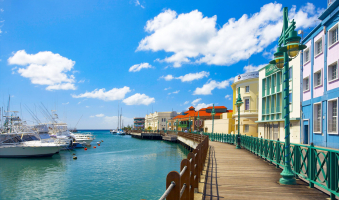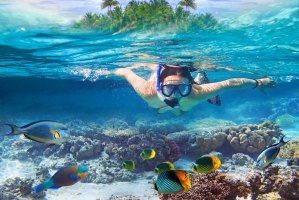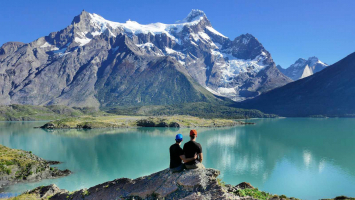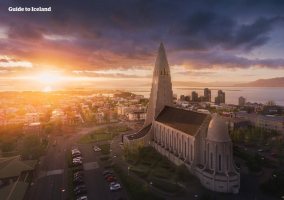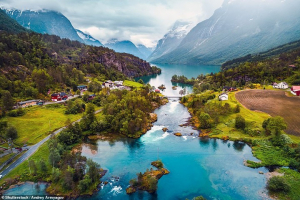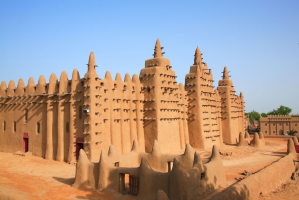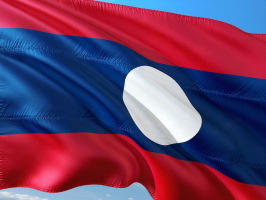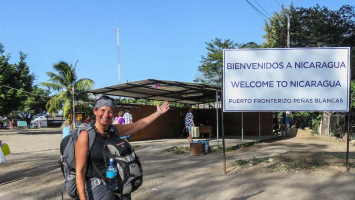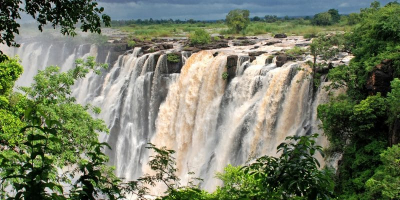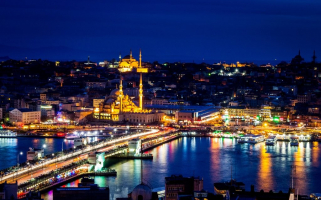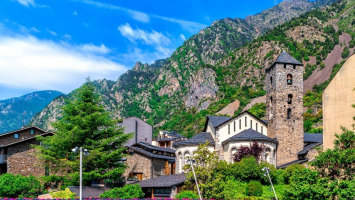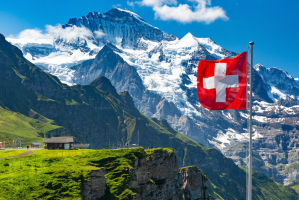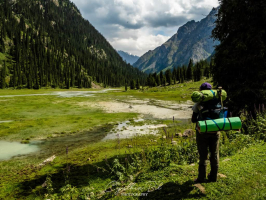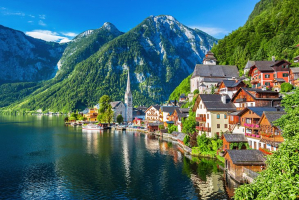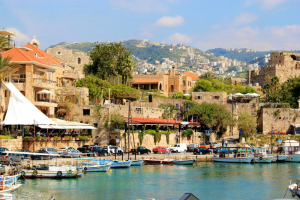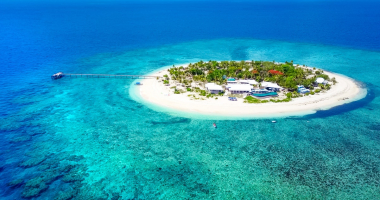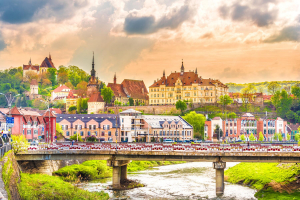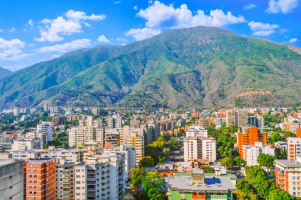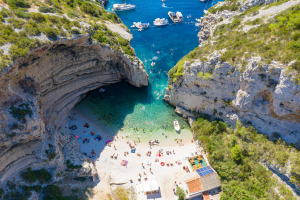Top 8 Things About Brunei You Should Know
Brunei is a Southeast Asian republic located on the northwestern coast of the island of Borneo. Brunei is one of Asia's lesser-known countries, renowned mostly ... read more...for its oil wealth and primeval forests. Here are a few things about Brunei you should know.
-
Brunei, Asia's fourth smallest country, is located in South East Asia on the island of Borneo. Brunei, which is surrounded by Malaysia and Indonesia to the south of the Malaysian border, is reported to be the second richest country in Asia (after Singapore) and the sixth richest country in the world in terms of GDP per capita based on purchasing power parity (PPP). Brunei is often overlooked as a tourism destination, much alone a scuba diving destination, due to its small size. However, due to its proximity to the legendary 'Coral Triangle,' its location on the northwest edge of Borneo (or Kalimantan, as the Indonesian half is known) is gradually making it a popular dive spot.
Brunei is easily accessible; its international airport, Brunei International Airport (BWN), is located in the nation's capital, Bandar Seri Begawan, and it is also accessible by land from Malaysian Borneo. This is one of the things about Brunei you should know.
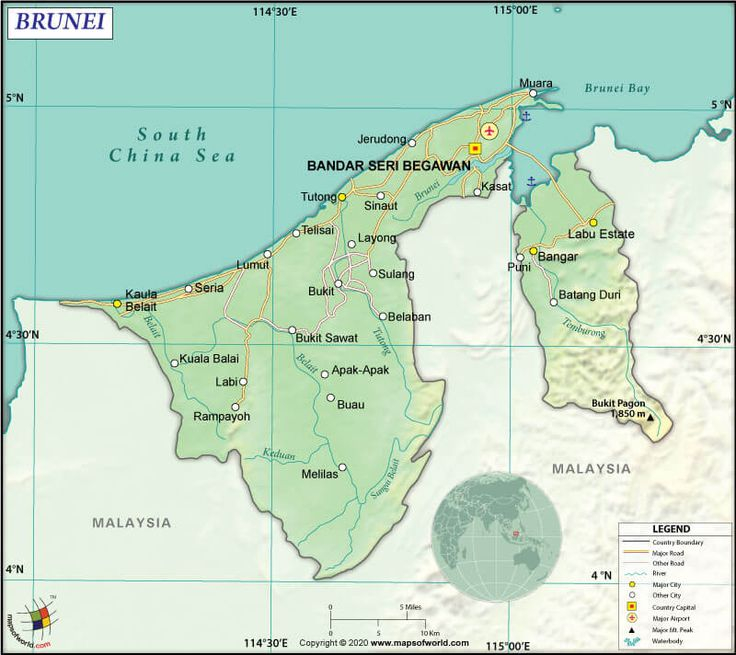
Source: pinterest.com 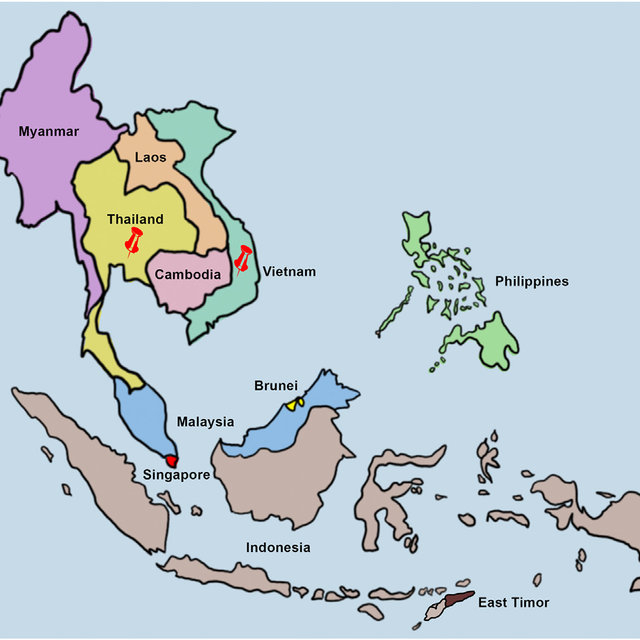
Source: researchgate.net -
Hassanal Bolkiah is the current Sultan of Brunei, one of the world's few surviving absolute monarchy. On July 15, 1946, he was born as the oldest son of Sir Omar Ali III. After being pressed by the British, Brunei experimented with democracy in 1962, with the Brunei People's Party capturing virtually all parliamentary seats. The party led a revolution against Sultan Omar Ali, Hassanal's father, but the insurrection was defeated with the assistance of British forces. Omar announced a state of emergency, resuming total powers for the Sultan that still exist today.
Hassanal took over the sultanate on October 4, 1967, when his father abdicated in a desperate bid to withstand the concurrent clamors for democracy and communist influences. Omar Ali III went on to govern in secret until he had a falling out with his son and the army swore loyalty to Hassanal. Hassanal crowned himself King, Prime Minister, and Minister of Defense when Brunei obtained complete independence from the British on January 1, 1984.
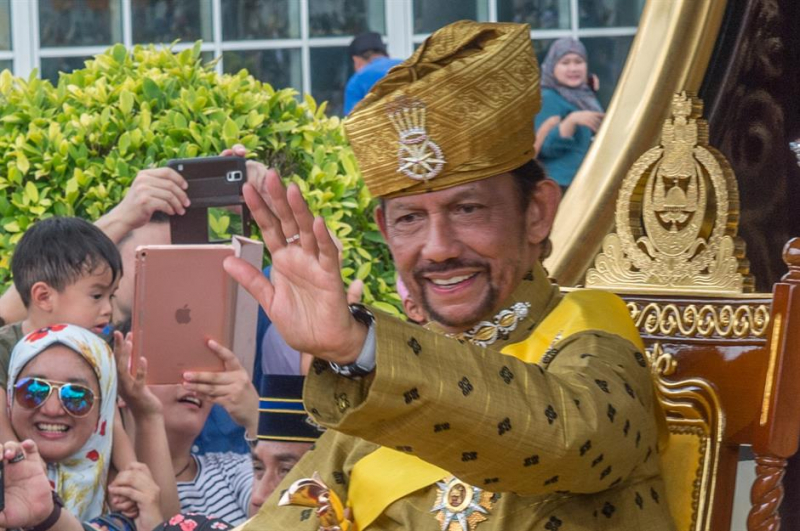
Source: lovemoney.com 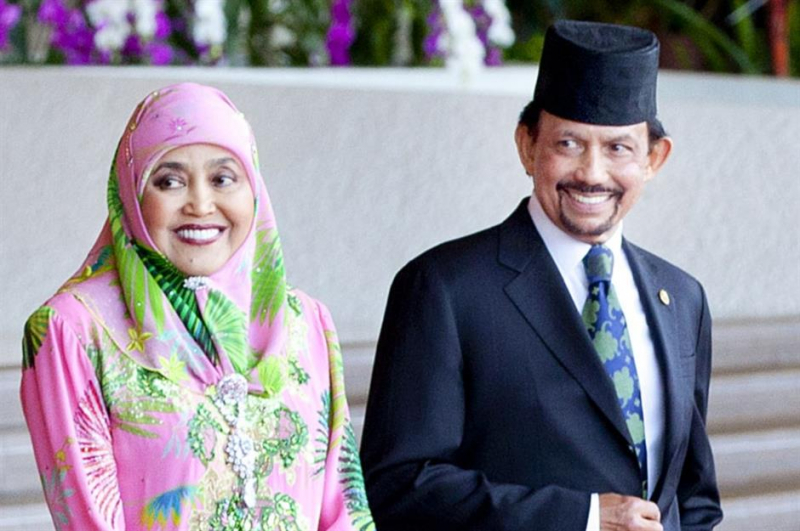
Source: lovemoney.com -
By the late nineteenth century, the Brunei Sultanate had lost its luster and economic vigor, as well as losing sections of its borders, and had devolved into a dormant state. Brunei adopted the position of British Protected State in 1888, when it signed a Protectorate Treaty with Britain. In exchange for protection from foreign foes, the Sultanate's exterior affairs were taken over by the United Kingdom.
Despite the pact, Brunei was being pillaged by its neighboring states of Sarawak and Borneo. The country was on the verge of insolvency and was on the verge of disintegrating. Brunei signed an agreement with Britain in 1906 that guaranteed the succession of Brunei's royal dynasty, with the proviso that a British resident would advise the Sultan on all things except internal policies pertaining to local traditions and religion.
Brunei remained a British Protectorate until 1971, when it ceased to be a British protected state under an agreement with the UK. Brunei's constitution was altered to give the Sultan complete power over all domestic issues, but the United Kingdom retained responsibility for defense and international affairs. On January 1, 1984, the country gained independence from the United Kingdom.
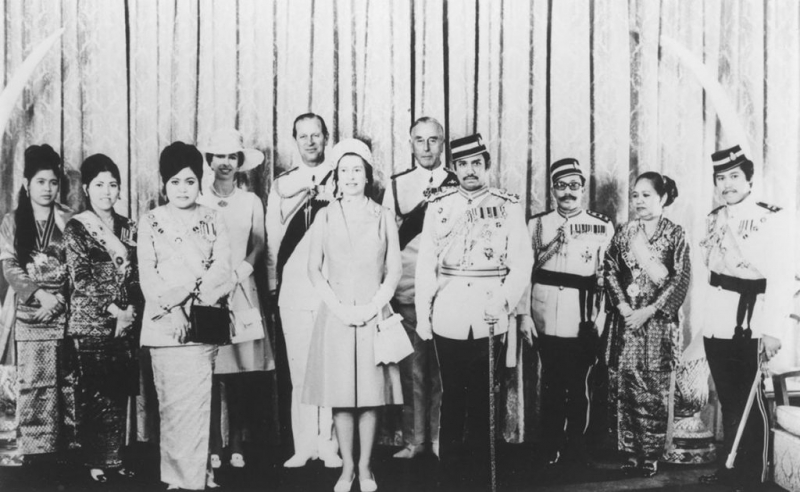
Source: thescoop.co 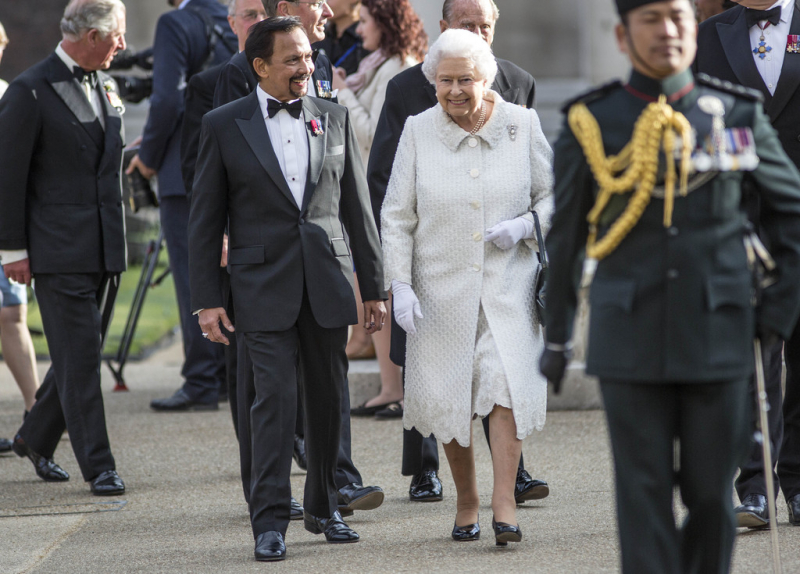
Source: zimbio.com -
The Japanese invaded Brunei on December 16, 1941, eight days after the attack on Pearl Harbor. The Japanese attacked and conquered Brunei with the hopes of obtaining a portion of the country's oil. Despite Brunei's protectorate status, the British did not intervene.
The Japanese embraced indirect rule, with native leaders serving as military government instruments based on their previous standing and abilities. Japanese was taught in schools under the Japanese occupation, and government personnel were compelled to take night lessons to master the language. The Japanese also attempted to incite anti-European feeling among Bruneians.
The final days of Japanese rule were characterised by severe food and medical supply shortages. The Japanese occupied Brunei for over three and a half years until being driven out by victorious Allied forces led by Australian Forces in June 1945.
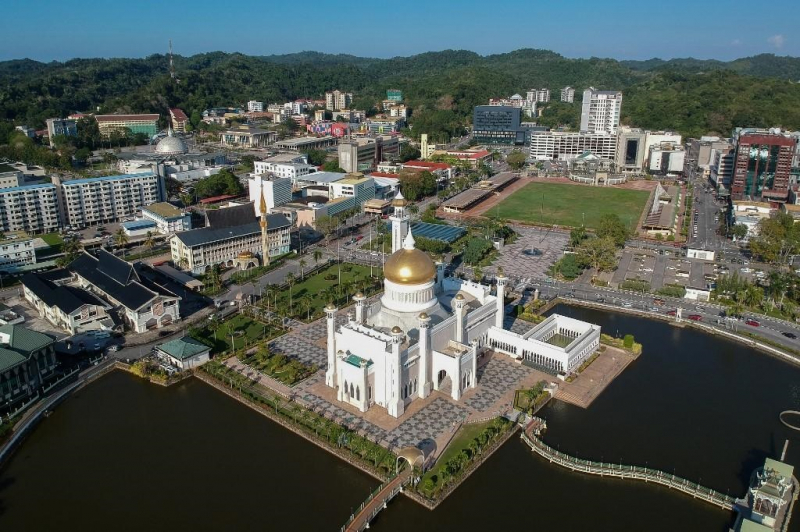
https://vnexpress.net/ 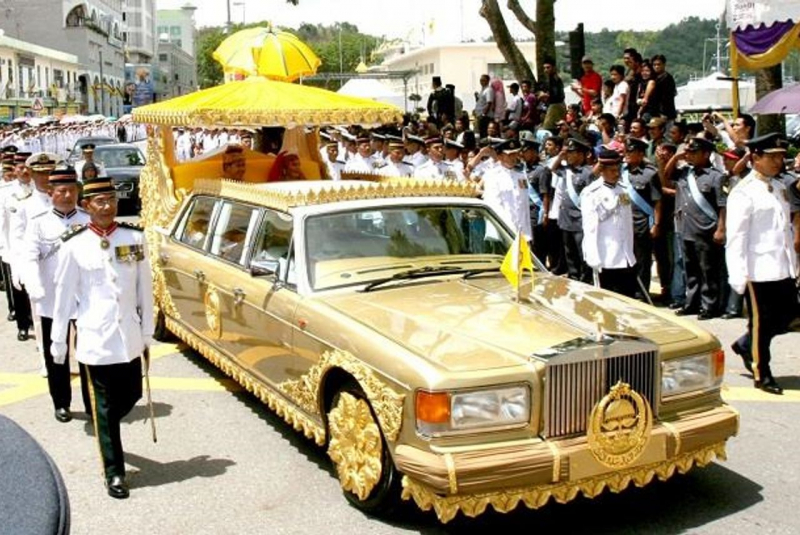
https://vnexpress.net/ -
The Sultan of Brunei, Hassanal Bolkiah, lives in the Istana Nurul Iman, which also serves as the seat of the Brunei government. The palace is a few kilometers southwest of Bandar Seri Begawan, Brunei's capital city, on a green, riverside sprawl of hills on the banks of the Brunei River. State festivities and royal hospitality frequently take place at the palace.
The name "Istana Nurul Iman" is derived from the Malay word "Istana" and the Arabic word "Nur-ol Imaan," which means "Palace of Faith's Light." It was created by Filipino Visayan architect Leandro V. Locsin, who used a golden dome and vaulted roof architectural theme to reflect Brunei's Islamic and Malay influences.
Khuan Chew, Design Principal of KCA International, was responsible for the palace's interior design, which includes the Burj Al Arab in Dubai. Ayala Abbott and Butters, a UK construction firm, was in charge of the project, which was finished in 1984 at a cost of roughly US$1.4 billion.
This is the world's largest residential palace, with a total size of 200,000 square meters (2,152,782 square feet). This is one of the things about Brunei you should know. The palace must have been built with the intention of being used as a royal dwelling, and only the combined size of the palace's indoor floors (also known as floorspace) is considered for the Guinness World Record.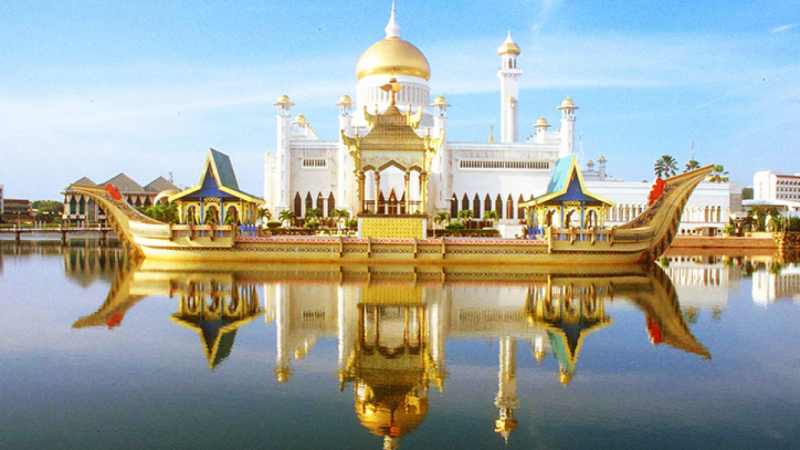
https://kyluc.vn/ 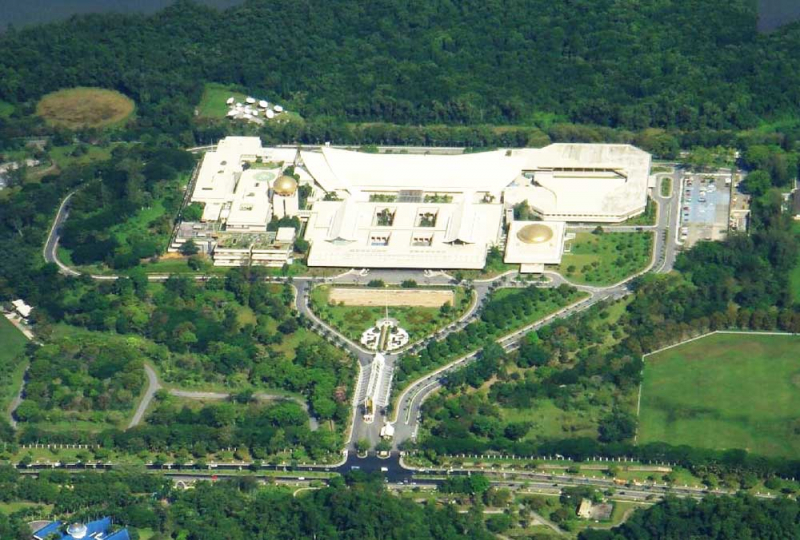
https://kyluc.vn/ -
Kampong Ayer is a well-known traditional village in Brunei's capital, Bandar Seri Begawan. It consists of traditional home neighborhoods, schools, and mosques built on stilts above the Brunei River near the city center. It covers around 10 square kilometers (3.9 square miles) and had a population of 10,250 people in 2016. It has been dubbed the "Venice of the East" in the past. Kampong Ayer has long been Brunei's main settlement; it served as the de facto capital of the Bruneian Empire, particularly as a social and economic center, for several centuries, but also during the early years of British empire in the country.
Kampong Ayer, which was founded over 1,000 years ago, is made up of 42 neighboring stilt villages that accommodate over 30,000 people. A 30 km (19 mi) network of walkways and bridges connects the buildings, forming a cohesive settlement.
Hospitals, shops, mosques, schools, a post office, eateries, police stations, and a fire department are all located above water in Kampong Ayer. Piped water, electricity, and satellite television are all available in these homes. Kampong Ayer is a popular tourist site in Brunei because of its winding plankways.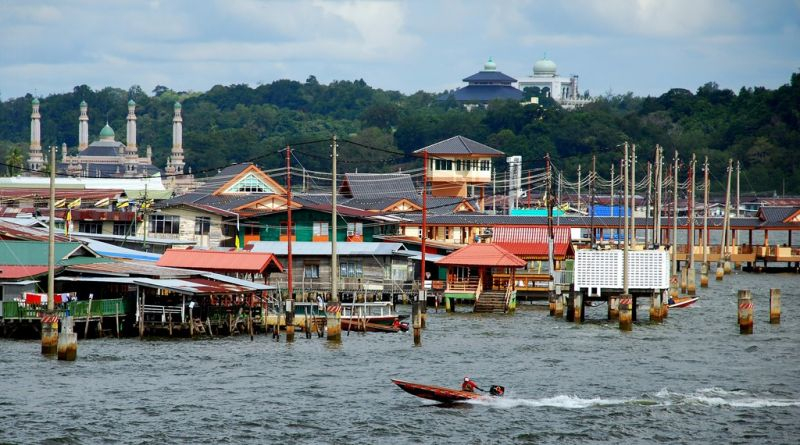
http://vyctravel.com/ 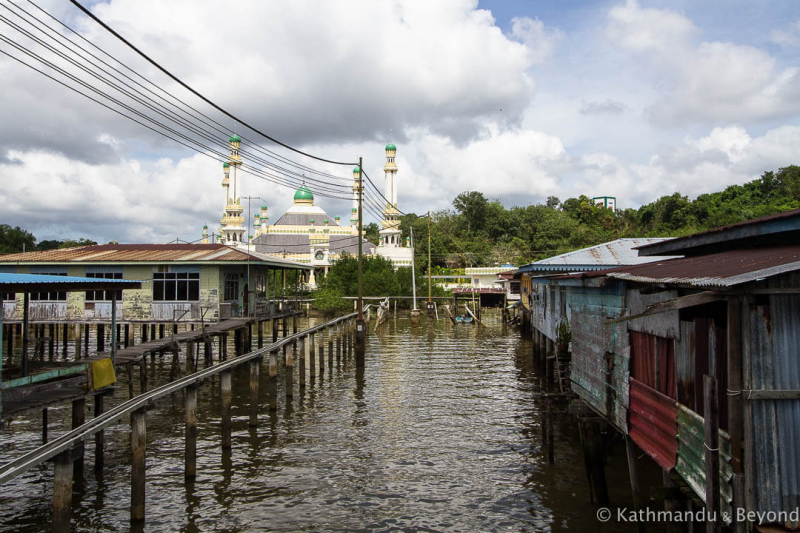
https://www.kathmanduandbeyond.com/ -
Bruneian cuisine refers to Brunei's cuisine. It is influenced by and comparable to the cuisines of Malaysia, Singapore, and Indonesia, with additional influences from India, China, Thailand, and Japan. Fish and rice are staple foods, as they are throughout the region, while meat is more expensive and thus less prevalent. The meal is halal and pork is avoided due to the Islamic religion's supremacy. Brunei prohibits the consumption of alcoholic beverages. Game animals such as wild birds, sambar deer, and barking deer are hunted in rural areas.
Bruneian cuisine is hot and spicy, and it's usually served with rice or noodles. Brunei's national dishes include beef rendang, nasi lemak, and pajeri nanas. Ambuyat, a sticky ball of flavorless sago starch wrapped around a bamboo fork and dipped into a spicy and sour sauce, is one of the few Brunei foods. Nasi katok, or "knock rice," is a famous Indonesian dish made up of plain rice, fried chicken, and sambal, a spicy relish made up of ground chili peppers and a range of other ingredients such as shrimp paste, garlic, ginger, shallot, scallion, palm sugar, lime juice, vinegar, and anchovies. Traditionally, nasi katok is served wrapped in brown paper.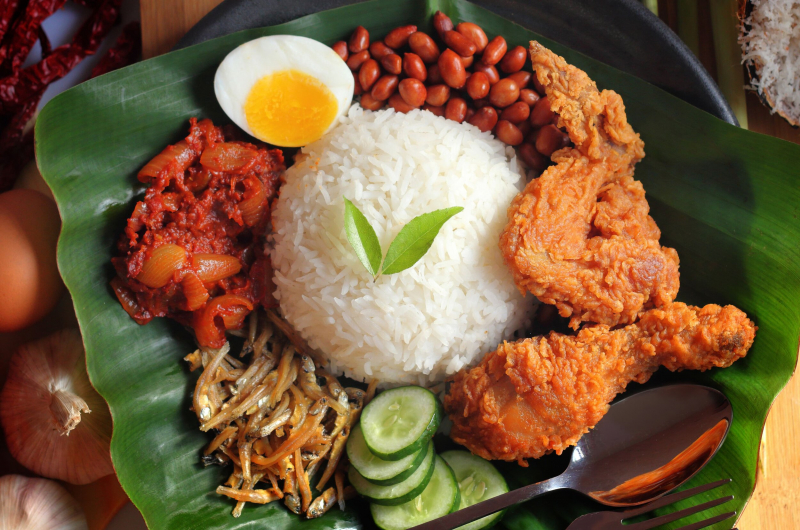
https://trvlguides.com/ 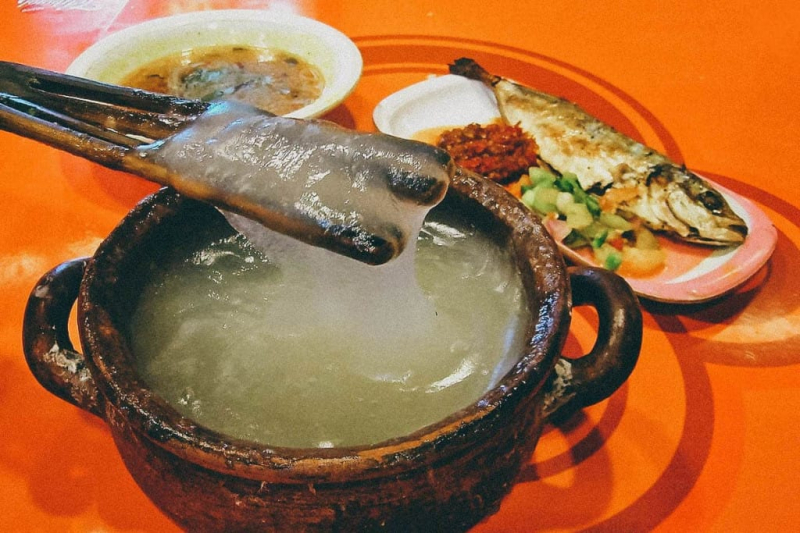
https://www.travelingeast.com/ -
Muslims all throughout the world celebrate Hari Raya AidilFitri, an Islamic festival. This is one of the things about Brunei you should know. It is the most wholesome holiday of the year in Brunei, with most stores and restaurants closing for the first three days of the month-long celebration, allowing people to spend undisturbed quality time with their families and friends. Bring a stylish modest attire that covers your arms, shoes that cover your toes, and a hijab if you plan on going during this time (first three days) (for ladies).
This is one of the few times His Majesty's great palace, Istana Nurul Iman, is open to the public, and you'll get the opportunity to meet members of the Royal Family. There is a long line to enter, but if you've ever wanted to see what His Majesty's palace looks like, now is your opportunity. Men, including the Sultan, will be allowed to meet and greet male members of the Royal Family, while ladies will meet and greet female members of the family, including the Queen.
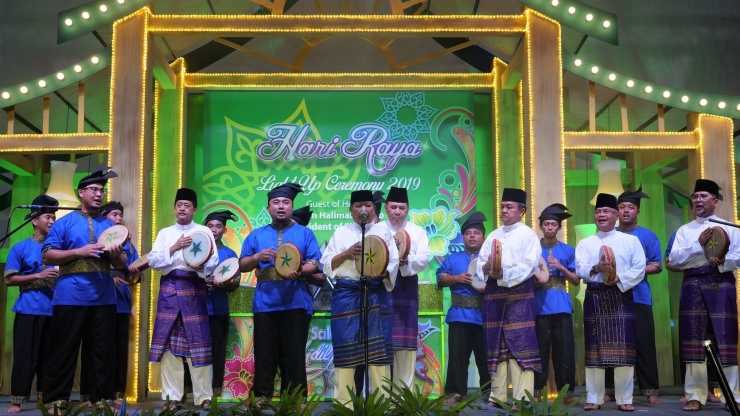
https://www.visitsingapore.com/ 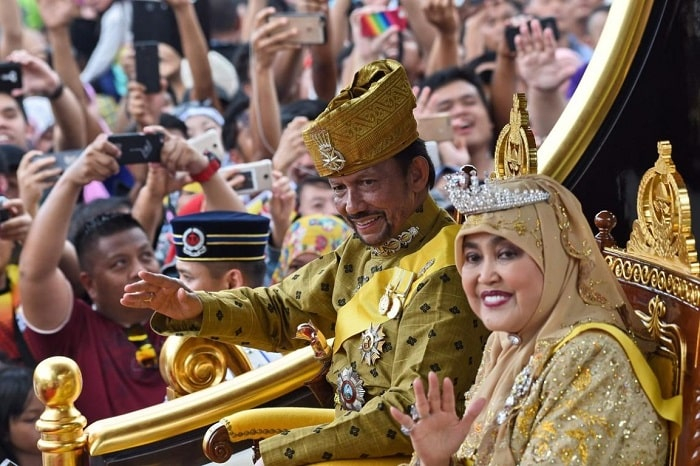
https://luhanhvietnam.com.vn/










